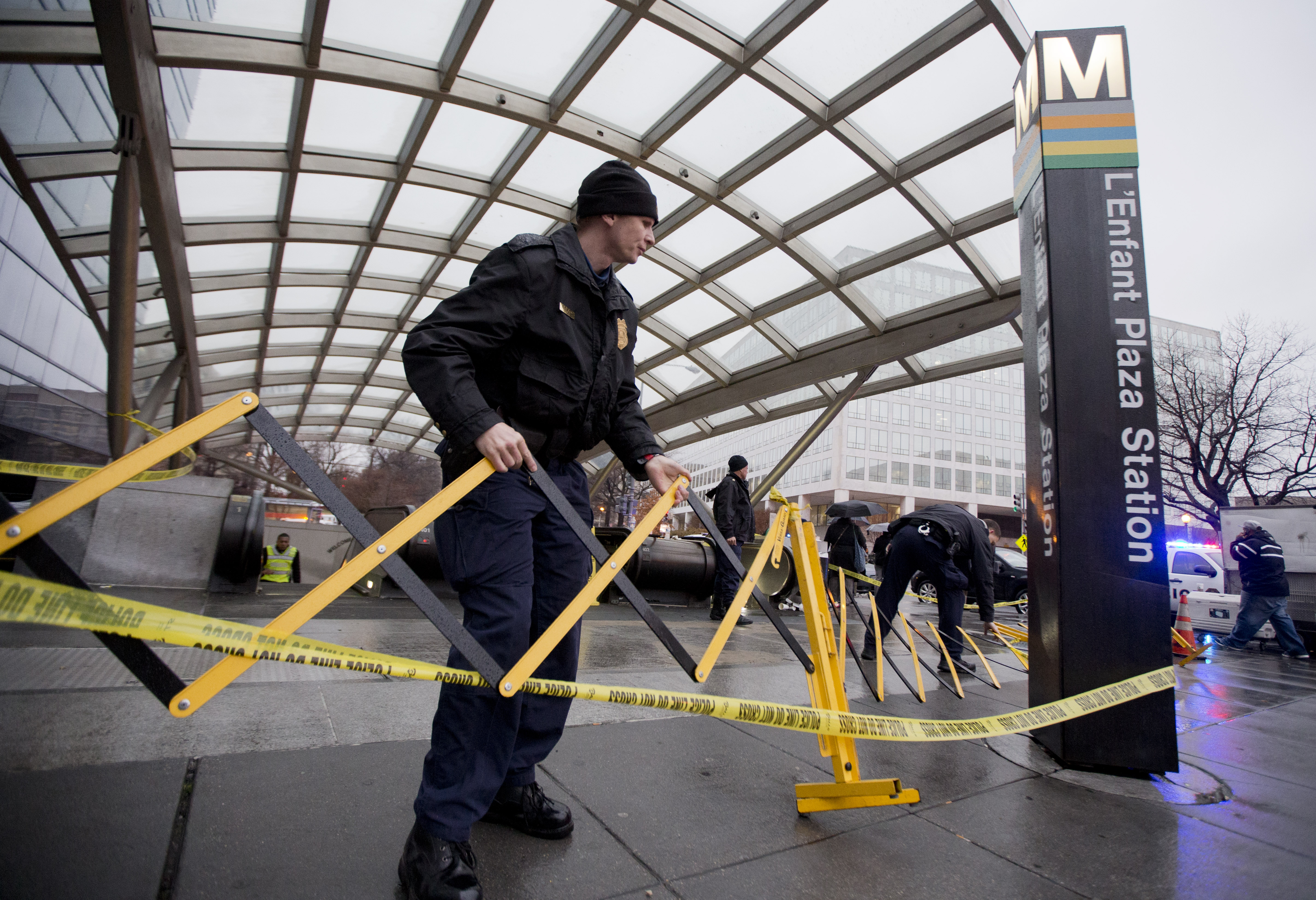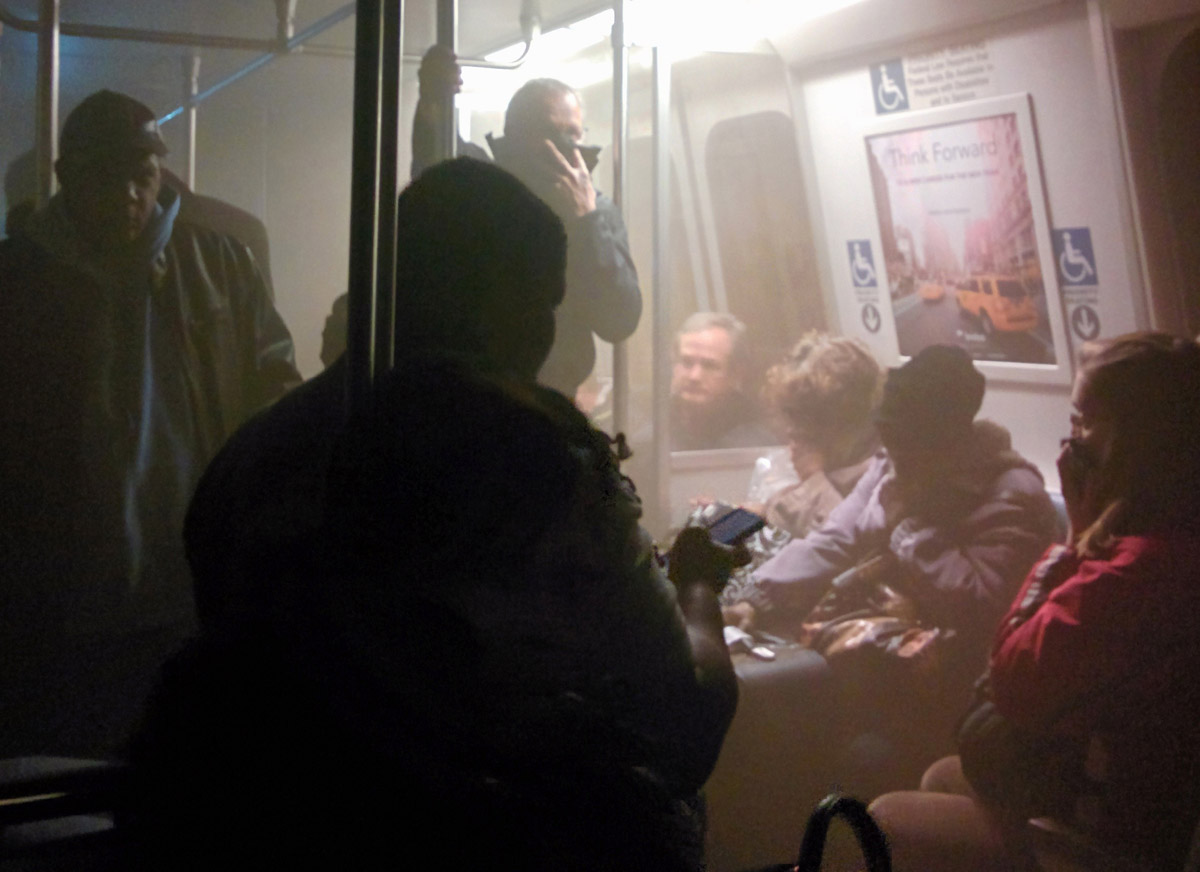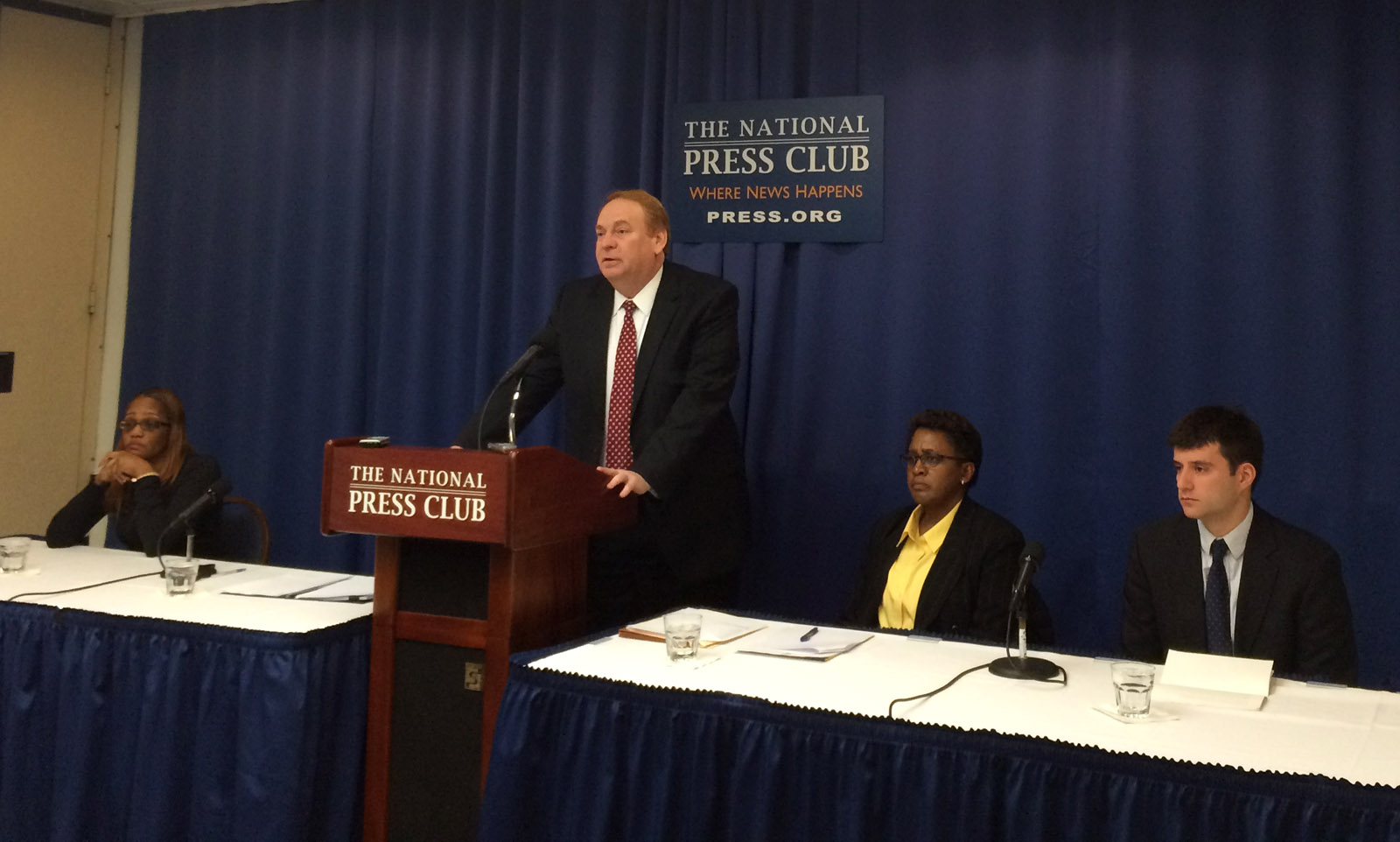WASHINGTON — Metro’s six-year, $5 billion rehabilitation plan following the deadly 2009 Red Line crash has faced a series of delays, from inside and outside the agency, that has left a significant amount of the money allocated for safety and other improvements unspent in each of the last five fiscal years, and left a number of urgent recommendations incomplete.
In budget documents made available ahead of a Metro Board committee hearing Thursday, Metro staff say $3.7 billion was spent on capital improvements between July 2010 and July 2015. While Metro says spending increased over each of the first three fiscal years, the two most recent saw declines “due to vendor delays in delivering buses and new railcars, inefficiencies in project management, along with changes in capital processes as a result of the Federal Management and Oversight (FMO) audit.”
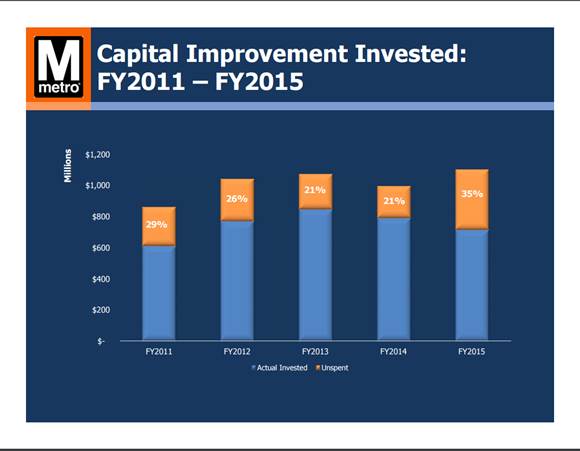
The audit and oversight found major problems with Metro’s financial organization, which are only now beginning to be fixed.
“Every fiscal year between FY2011 through FY2015 Metro has experienced challenges in spending the full amount of the approved budget,” the document says. ”Starting in FY2014 and continuing into FY2015 investment through the capital program decreased for various reasons including vendor delays in bus and railcar deliveries, the purchase of materials requiring longer manufacturing times and construction projects starting later than forecasted.”
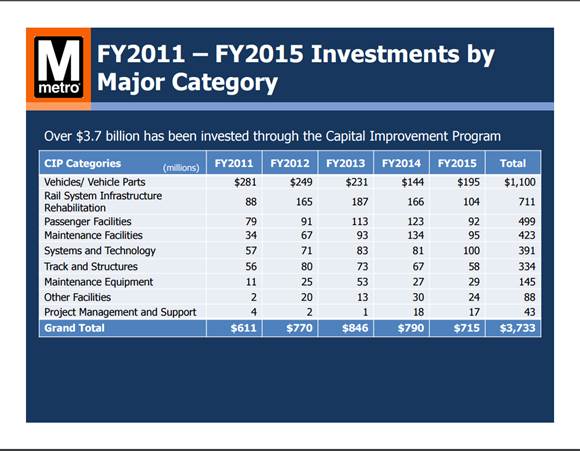
The larger capital projects in the rehabilitation plan are a major reason Metro closed stations on weekends and implemented regular single-tracking throughout the system, so that workers would have more time on the tracks.
Metro has replaced 336,000 feet of power cable, removed work equipment along tracks and replaced turnouts where vehicles can sit on a different track.
But the staff report, mirroring information from federal investigators, says track access was not efficiently and centrally managed, so that stretches of track were closed while limited work was actually getting done.
Four outstanding recommendations from the National Transportation Safety Board are tied to the 2009 crash.
Metro says the last of its oldest railcars, the 1000 Series, are now scheduled to be removed from service by December 2017.
The new 7000 Series railcars that are set to replace them and slightly expand the fleet have been beset by delays.
“The issue there is making sure that when they come off the line, we don’t have to touch them, and we’re not there yet,” Metro General Manager Paul Wiedefeld says in an interview with WTOP.
He says Kawasaki, which is manufacturing the cars, should begin sending the cars again soon. Metro then commissions them before putting the new trains into service.
Metro forecasts getting 12 cars a month, but that number may not be met.
As for other outstanding NTSB recommendations, Metro expects to complete the replacement of Generation II Track Circuits by the end of summer. Metro says that replacement is now nearly 90 percent complete, with 2,085 of 2,351 circuits replaced.
Each railcar has an event recorder that can track incidents, and Metro says the recorders on the 4000 Series cars have all now been installed. They are waiting on approval of the documentation showing that software issues have been resolved.
The final outstanding NTSB recommendation is a Wayside Worker Warning System.
Metro also has dozens of other safety problems that the Federal Transit Administration has ordered the agency to address, including improved communications and safety upgrades.
A contract to replace Metro’s radio infrastructure in the wake of the communications failures uncovered after the deadly Yellow Line smoke incident one year ago is scheduled to be awarded this summer. Metro staff say any delays in what Metro sees as a “top safety priority” could affect the ability to deliver the upcoming capital improvement plan on time.
Metro staff attribute the overall delays in the improvements under the older plan adopted after the Red Line crash to five problems:
- “Management Controls: Insufficient management controls were put in place to establish formal processes and procedures to initiate projects, efficiently monitor progress based on scope and schedule and validate budget requests for future years based on schedule.”
- “Contract Delays: Except for FY2011, which had a significant amount of contracts open prior to the new funding agreement, historically contracts have been opened during the year that funding was requested. Although at the end of the fiscal year significant portions of the budget were under contract it did not translate into spending for that year.”
- “Schedule Delays: A significant factor in underspending occurred because of delays in executing the contract schedule by either Metro or the vendor”
- “Changing Priorities: The impact to performing capital improvements in an operating system can be significant. As new needs are identified projects currently under contract need to be reevaluated and prioritized and this can cause both slippage in schedules and additional costs through delay claims.”
- “Compliance: The implementation of new processes as a result of the FMO Audit released in late spring 2014 impacted capital spending. As a result expenses related to non-federally compliant procurements were removed from projects, usage of the Job Order Contract (JOC) contracting vehicle was scaled back, timesheets for all capital labor became requirements.”
Metro says it has learned from the problems, and will have a more formal process to start and approve capital projects in the future. Metro also promises to focus on what the contracts actually deliver, rather than how much is spent, and switch for better forecasts and more narrowly focused contracts.
Metro says capital spending has increased over last year in the current fiscal year that started in July.
Metro staff warn delays in the delivery of new 7000 Series railcars, needed to replace the 1000 Series, and new buses could slow progress.
Staff are also concerned about whether contractors working on station improvements along the Blue and Orange lines will have the access they need to complete their work.

